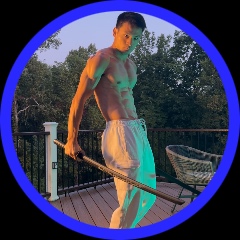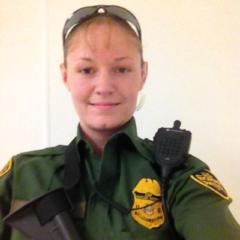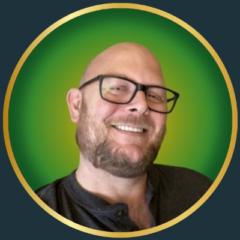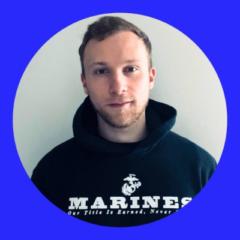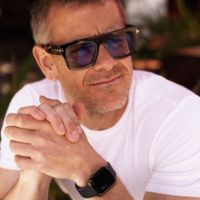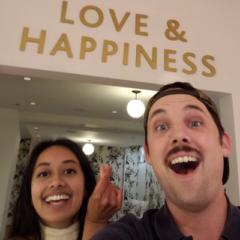19d • Reflections
How Did You Act During Setbacks
I meant to comment on your replies on previous posts but I noticed a common theme of recovering from past setbacks.
So I open this new post to make sure the golden nuggets don't get buried and are easy to find.
I will ask questions and then at the end share my own experience.
you mentioned your shoulder injury, and how you are actively pushing through an uncomfortable recovery journey. I'd like to hear how you got the injury to begin with, how long you battled against it, and the decision that led to a surgery. And after the surgery, has the restriction of motion prevented you from doing something you really enjoyed prior to the surgery? How are you dealing with both the physical pain and the emotional discomfort?
you said you had endured type 1 diabetes for over 30 years. It must have been restrictive on your lifestyle at first. But knowing that you are an entrepreneur who solves problems, what are some of the adjustments you found along the way that not only kept you healthy but also made your journey more enjoyable? We've already talked about keto buns. I'm sure you must have more adjustments that could be super valuable for people who don't have the condition but want to consume food in a healthier way. For example, healthier snacks, or ways to source good food, or everyday food on the market that actually have bad effects on health.
you mentioned your addiction that ended years ago. I'm curious to hear about your entire experience because I know you like to share in details. And I'm amazed by the breadth of human experience you've shown. How did it originate, and more importantly, how did you bounce back? Did you do it alone and it was a personal journey or did you do it with others, helping each other climb out of the hole? And how did the experience help you see problems around addiction in other people's lives? You mentioned that you tried to start an online campaign to battle porn addition. How did your experience shape the messages in your campaign? And I'd like to know your futures plans around helping others battle addiction.
And for me, I've had serious injuries in my ankles and my knees that set me back physically for months and even years. The first time I had an ankle sprain in high school, I was immobalized. I couldn't go to basketball practice. I couldn't go outside after school. However, it was a time when I was trying to switch my math class. I had just moved to the US for grade 10. And after getting into the same math class that most of my peers take, I found that it was too easy for me. So I applied to switch myself into a grade 11 math class, one that was also more prestigious and had more weighted grading points. But the problem was that a quarter of the semester already passed. My math teacher, however, made me a deal. If I could take the finals and score well, then I can move up. The course material was easy and mostly familiar to me, coming from the Chinese education background, but I'd say 30% of the course was new to me. But during the week of my immobilization, I learned all the material by reading the book, and with the help of a friend who tutored me for the test. In the end, I scored nearly perfect for two finals, one for each semester, at the point of just a quarter of the semester. And I moved to the more advanced course with "Honors Advanced" in its title, took the exams I had also missed due to not attending the first quarter of the semester. And I did well.
Then when I started working at Google after college. I had developed patellar tendinosis in my knees due to jumping and running too much in basketball. It was a wicked injury that I knew no way of healing. When I move, my knees hurt. When I didn't move, my legs get weak and the knees didn't become better by themselves. I trained around the issue and reduced my basketball time by a lot. I was frustrated. However, it was during that time I picked up electric guitar again. I used the time that I was sidelined from the physical activities to learn music. And interestingly, I broke through in my musical journey.
I had actually been classically trained in accordion. I played at 2008 Beijing Olympics when I was in middle school. However I hated it, because I disliked reading sheet music. I didn't know at the time why, and simply labelled myself being not interested in advancing my learning of accodion. But I picked up guitar because I could just strum some chords and play a few notes without looking at sheet music.
But then during my time at Google where I was battling knee pain, the time the was freed up from sports allowed me to explore ways to learn music other than reading sheet music. I found that Jazz musicians not only play music without sheet music but also improvise. This was like a quantum leap to me. How could one population of musicians have to play music while reading sheet music, while another population of musicians, also masters, could also play fluently without reading sheet music. And I found Jazz musicians to be more impressive because of improvisation. After learning by myself and learning from others, including private online lessons with a Berklee professor (it's funny because I went to UC Berkeley, so when I say I went to Berkeley, and people ask which Berkeley, I can say that I got educated by both). I realized that learning by ear is more important than reading sheet music. And that's because when I learn by ear, what I play is something I already heard in my mind. it's like when you speak you don't think about how to pronounce a word with your tongue or teeth, or how to form a sentence. You just express your idea effortlessly. For me, playing while looking at sheet music was like reading instructions on how to move my tongue and teeth to say something. And so I spent time to learn music by ear. And after months I started to distinguish relative pitch. Then after years, I felt so much joy playing electric guitar and also keyboard because I can understand the music in my mind and I can link everything through music theory to the intruments. And I also use sheet music, but I don't rely on it. The musical notations are still an essential tool. It's the best in store music in written format. But it's just a tool.
So during those physical setbacks, I turned to other areas of advancement. It wasn't a conscious choice at the time. But somehow I always tried to push the frontier in my personal development when my progress stalled in physical training.
Maybe it's because I just have to have self-development and if it's blocked in my primary form of physical training, I will find another way to do it.
2
7 comments
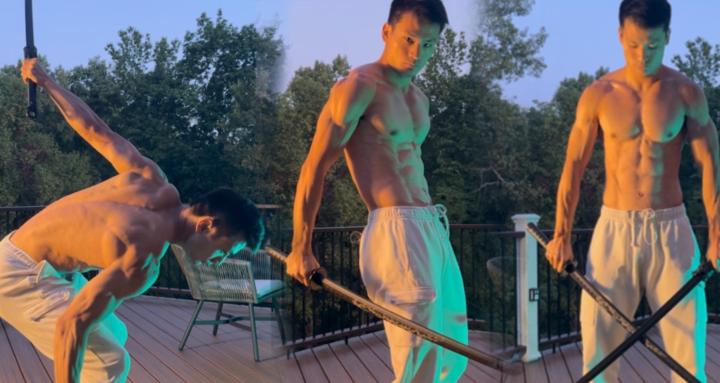
skool.com/dragon
Enjoy physical activities⛩️
without complicated plans💪
Powered by
